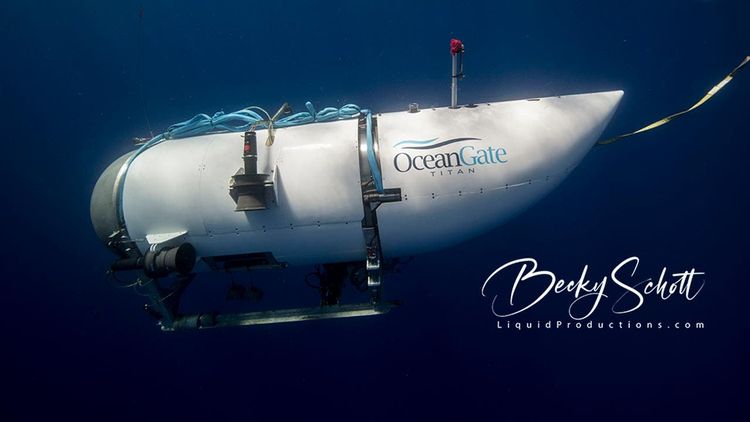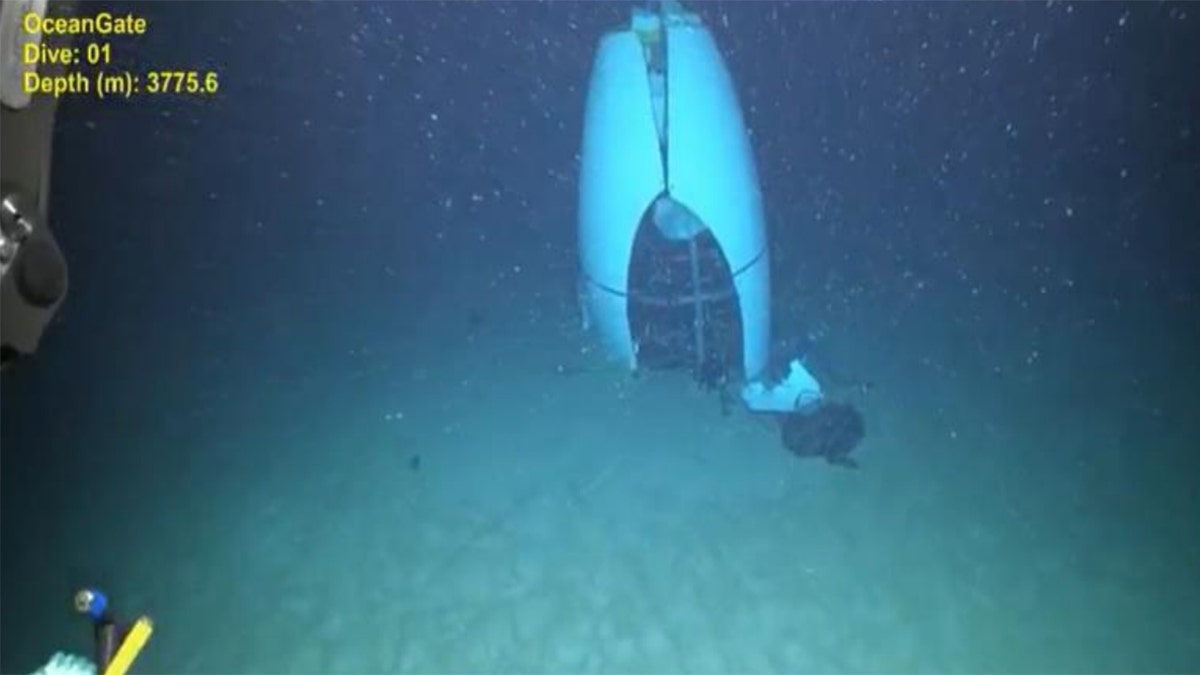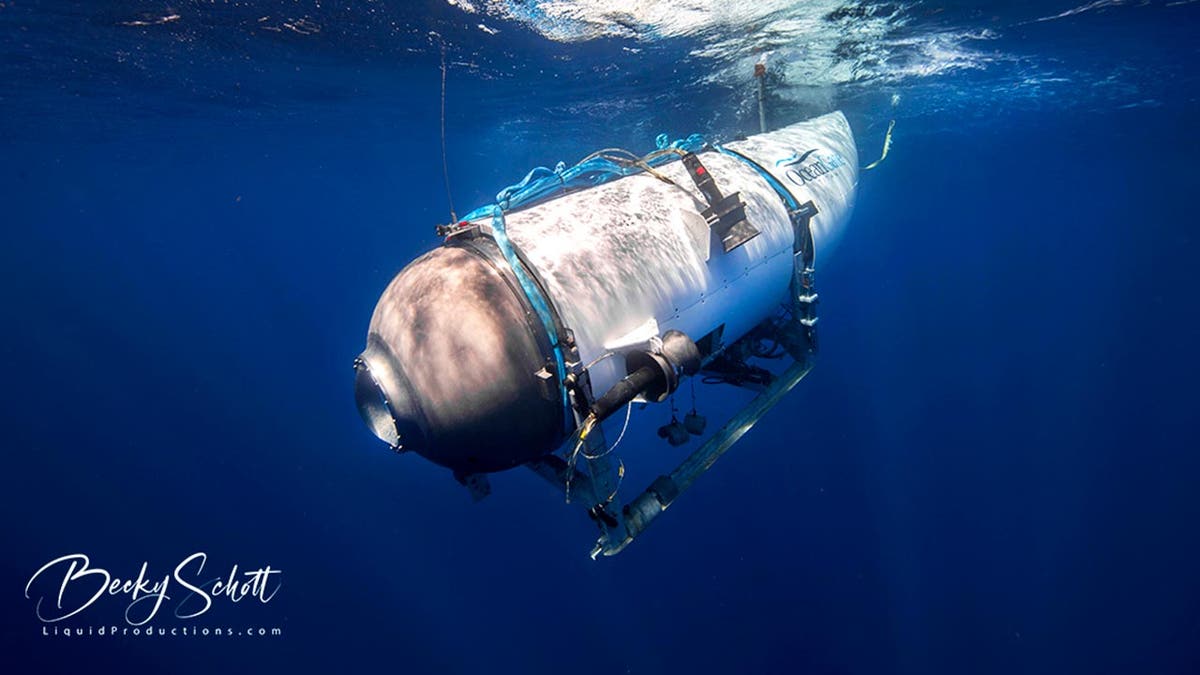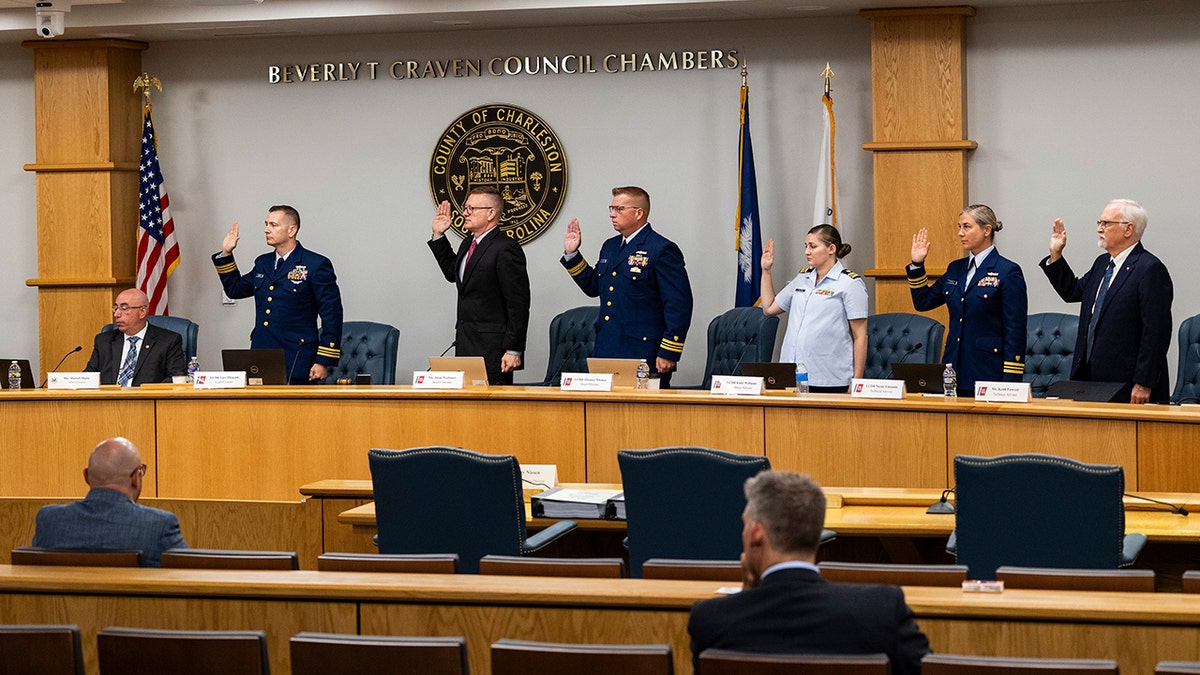Titan submersible implosion: OceanGate's deadly failure could add new layer to 'millionaire thrill rides'

Sign up for Fox News to gain access to this content.
Additionally, enjoy exclusive access to certain articles and other premium materials with your account at no cost.

When you provide your email and click continue, you acknowledge that you accept Fox News' Terms of Use and Privacy Policy, which contains information about our Financial Incentive Notice.
Kindly provide a correct email address.
During this week's hearing by the U.S. Coast Guard, additional information about OceanGate's unfortunate Titan submersible journey has come to light. Experts informed Fox News Digital that the outcome of this case might result in tougher regulations for companies looking to provide private underwater exploration in the future.
Former National Transportation Safety Board investigator Alan Diehl mentioned to Fox News Digital that the NTSB might want to look into the entire topic of approving “millionaire thrill rides.”
In June of last year, a tragic incident occurred involving U.K. billionaire Hamish Harding, Stockton Rush, the CEO of OceanGate, and the father-son duo Shahzada and Suleman Dawood, along with French explorer Paul-Henri Nargeolet. They lost their lives when the OceanGate Titan suffered a catastrophic implosion while descending towards the Titanic on June 18, 2023.
The final message they sent to the support vessel Polar Prince was, "Everything is fine here."
According to the U.S. Coast Guard, the crew of the Titan submersible sent messages stating that everything was fine just moments before the vessel experienced a catastrophic failure.

This picture depicts the Titan tail cone resting on the ocean floor as of June 2023. (U.S. Coast Guard/Pelagic Research Services)
During his testimony on Monday, Tony Nissen, the former chief engineer at OceanGate, expressed that he experienced pressure to prepare the vessel for its diving expedition. He also stated that he declined to pilot the craft on its first voyage.
"I’m not going to get involved," Nissen said to Rush, based on what he testified.
When questioned about the pressure to launch the vessel, Nissen answered, "Absolutely." He mentioned that he halted the submersible's trip to the Titanic in 2019, explaining to Rush that it was "not performing as we had expected," which resulted in his dismissal later that same year.
A former employee claims that the CEO of OceanGate crashed a submersible into a shipwreck in 2016 and even hurled a controller at the crew during the incident.
The Titan submersible was in the Bahamas back in May 2018. Tragically, it experienced a catastrophic failure while attempting to explore the Titanic on Monday, June 19, 2023. (Becky Kagan Schott)
Robert A. Sanders, a former captain in the U.S. Navy's Judge Advocate General's Corps and now a professor at the University of New Haven, shared with Fox News Digital that the Titan disaster revealed the risks associated with merging experimental technology and private business ventures.
"It's intended as an experiment. They’re pushing boundaries to explore new possibilities, but at the same time, they were treating it as a way to make money, which put the public at risk," Sanders explained. "The general public might not be able to tell the difference."

David Lochridge, who used to be the director of operations at OceanGate, testified on Tuesday, stating that the company's financial interests overshadowed safety. He mentioned that the main goal of the business was to generate profit and emphasized that there was minimal focus on scientific principles.
Sanders stated that a responsible sailor who prioritizes safety would recognize, "I'm not going to take on these extra tasks right now because I don't have all the necessary safety measures in place."
Members of the Coast Guard who are part of the investigative panel for the formal hearing on the Titan marine incident took their oaths in the Charleston County Council Chambers on Monday, September 16, 2024, in North Charleston, South Carolina. (AP Photo/Mic Smith)
"From what I've gathered, this company was facing major financial issues and needed a successful event to help improve their financial situation," Sanders explained. "It might have been smarter to just halt the project altogether."
According to the evidence and details available so far, Sanders noted that the vessel was unique in many ways. It was the first privately owned submersible designed for civilian use, constructed from titanium and carbon fiber, and it departed from the typical spherical design commonly found in deep-sea ships.
"When you consider how submarines are designed, they typically feature a double hull, are constructed from steel, and use specific welding materials to hold them together in order to withstand the pressure," explained Sanders.

"This soda can-shaped device had a tough fabric covering that worked well at certain depths where the pressure could be managed. However, for their intended destination—essentially the ocean floor where the Titanic rests—that specific design and material wouldn't hold up," he explained.
COAST GUARD DISCLOSES HEARTBREAKING LAST COMMUNICATION FROM TITAN SUBMERSIBLE PRIOR TO DEADLY COLLAPSE
This image, which is not dated, was shared by OceanGate Expeditions in June 2021 and features the Titan submersible created by the company. (Photo courtesy of OceanGate Expeditions via AP)
During Tuesday's hearing, Lochridge compared the Titan's hull to "permeable paper" and expressed his surprise at the choice to reuse elements such as the domes, acrylic sections, and interior components of the craft.
He mentioned that the submarine's viewport and dome ceilings did not conform to typical designs, and he expressed his shock at the O-ring seals, describing the vessel as a "monstrosity of a submarine."
Even though the Titan sub made multiple dives, it was never evaluated by an outside party, as stated in the testimony.
Sanders pointed out that the Titan disaster underscores the importance of implementing regulations for submersibles, especially if we want to see more private underwater explorations in the future.
"The Coast Guard might opt to hold more hearings to modify the federal regulations concerning the commercial operation of submersible vehicles," he explained. "This would allow us to implement safety regulations for passengers in this industry, just as we do for airplanes and commercial shipping."
CLICK HERE TO DOWNLOAD THE FOX NEWS APP
"As we explore these emerging fields, it might be necessary to introduce new regulations to prevent individuals from engaging in activities that are fundamentally risky and not well understood scientifically at this time," he explained. "As our understanding increases, we may find it appropriate to relax those regulations."











































